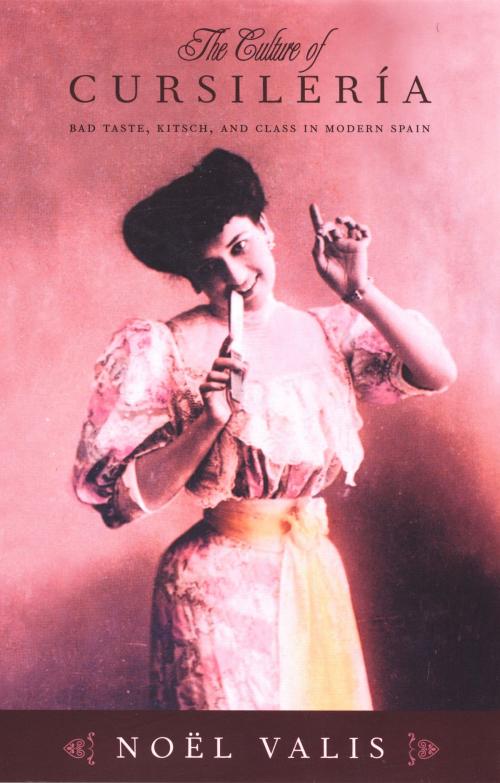The Culture of Cursilería
Bad Taste, Kitsch, and Class in Modern Spain
Nonfiction, Social & Cultural Studies, Social Science, Anthropology, Sociology| Author: | Noël Valis | ISBN: | 9780822384281 |
| Publisher: | Duke University Press | Publication: | January 16, 2003 |
| Imprint: | Duke University Press Books | Language: | English |
| Author: | Noël Valis |
| ISBN: | 9780822384281 |
| Publisher: | Duke University Press |
| Publication: | January 16, 2003 |
| Imprint: | Duke University Press Books |
| Language: | English |
Not easily translated, the Spanish terms cursi and cursilería refer to a cultural phenomenon widely prevalent in Spanish society since the nineteenth century. Like "kitsch," cursi evokes the idea of bad taste, but it also suggests one who has pretensions of refinement and elegance without possessing them. In The Culture of Cursilería, Noël Valis examines the social meanings of cursi, viewing it as a window into modern Spanish history and particularly into the development of middle-class culture.
Valis finds evidence in literature, cultural objects, and popular customs to
argue that cursilería has its roots in a sense of cultural inadequacy felt by the lower middle classes in nineteenth- and early-twentieth-century Spain. The Spain of this era, popularly viewed as the European power most resistant to economic and social modernization, is characterized by Valis as suffering from nostalgia for a bygone, romanticized society that structured itself on strict class delineations. With the development of an economic middle class during the latter half of the nineteenth century, these designations began to break down, and individuals across all levels of the middle class exaggerated their own social status in an attempt to protect their cultural capital. While the resulting manifestations of cursilería were often provincial, indeed backward, the concept was—and still is—closely associated with a sense of home. Ultimately, Valis shows how cursilería embodied the disparity between old ways and new, and how in its awkward manners, airs of pretension, and graceless anxieties it represents Spain's uneasy surrender to the forces of modernity.
The Culture of Cursilería will interest students and scholars of Latin America, cultural studies, Spanish literature, and modernity.
Not easily translated, the Spanish terms cursi and cursilería refer to a cultural phenomenon widely prevalent in Spanish society since the nineteenth century. Like "kitsch," cursi evokes the idea of bad taste, but it also suggests one who has pretensions of refinement and elegance without possessing them. In The Culture of Cursilería, Noël Valis examines the social meanings of cursi, viewing it as a window into modern Spanish history and particularly into the development of middle-class culture.
Valis finds evidence in literature, cultural objects, and popular customs to
argue that cursilería has its roots in a sense of cultural inadequacy felt by the lower middle classes in nineteenth- and early-twentieth-century Spain. The Spain of this era, popularly viewed as the European power most resistant to economic and social modernization, is characterized by Valis as suffering from nostalgia for a bygone, romanticized society that structured itself on strict class delineations. With the development of an economic middle class during the latter half of the nineteenth century, these designations began to break down, and individuals across all levels of the middle class exaggerated their own social status in an attempt to protect their cultural capital. While the resulting manifestations of cursilería were often provincial, indeed backward, the concept was—and still is—closely associated with a sense of home. Ultimately, Valis shows how cursilería embodied the disparity between old ways and new, and how in its awkward manners, airs of pretension, and graceless anxieties it represents Spain's uneasy surrender to the forces of modernity.
The Culture of Cursilería will interest students and scholars of Latin America, cultural studies, Spanish literature, and modernity.















